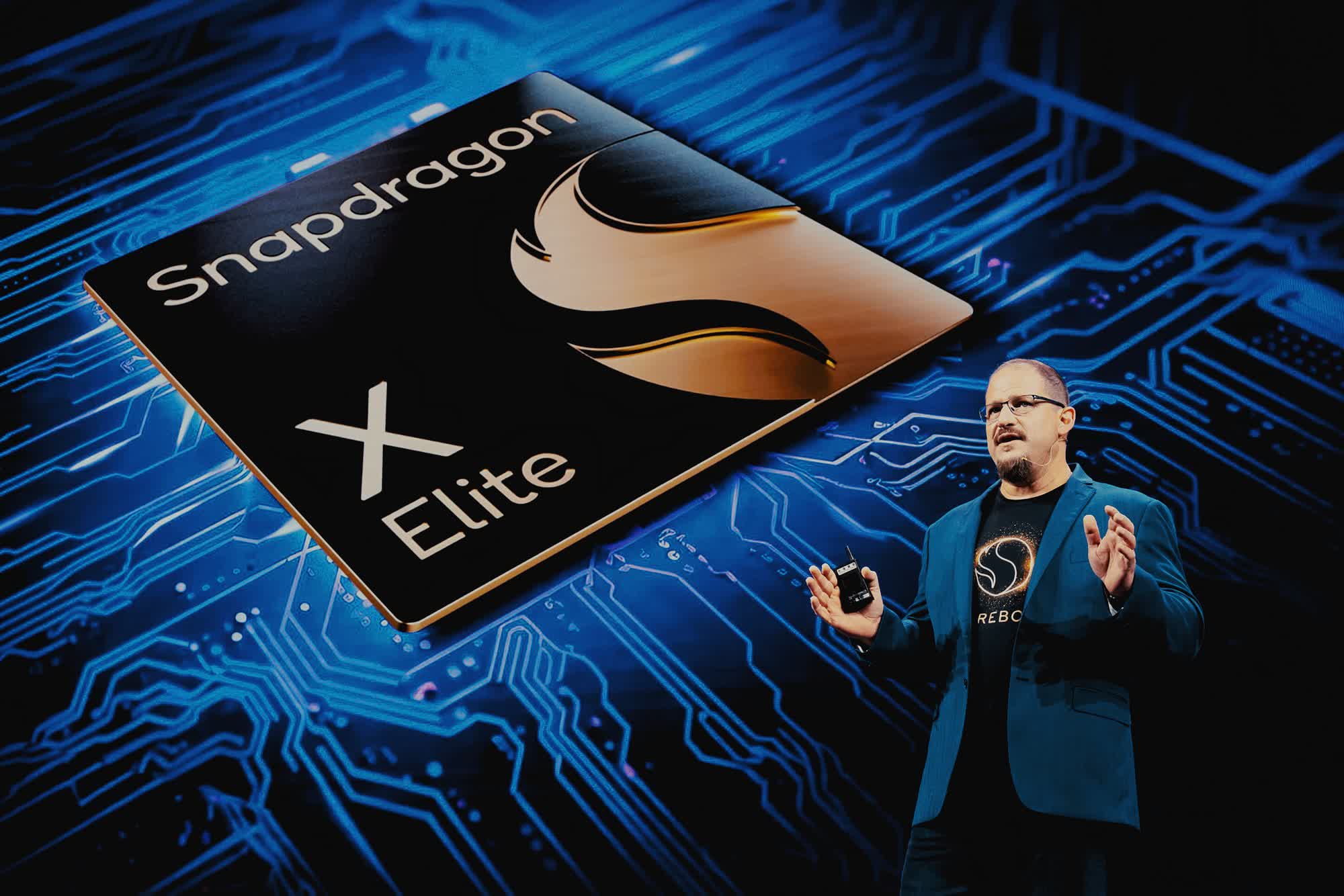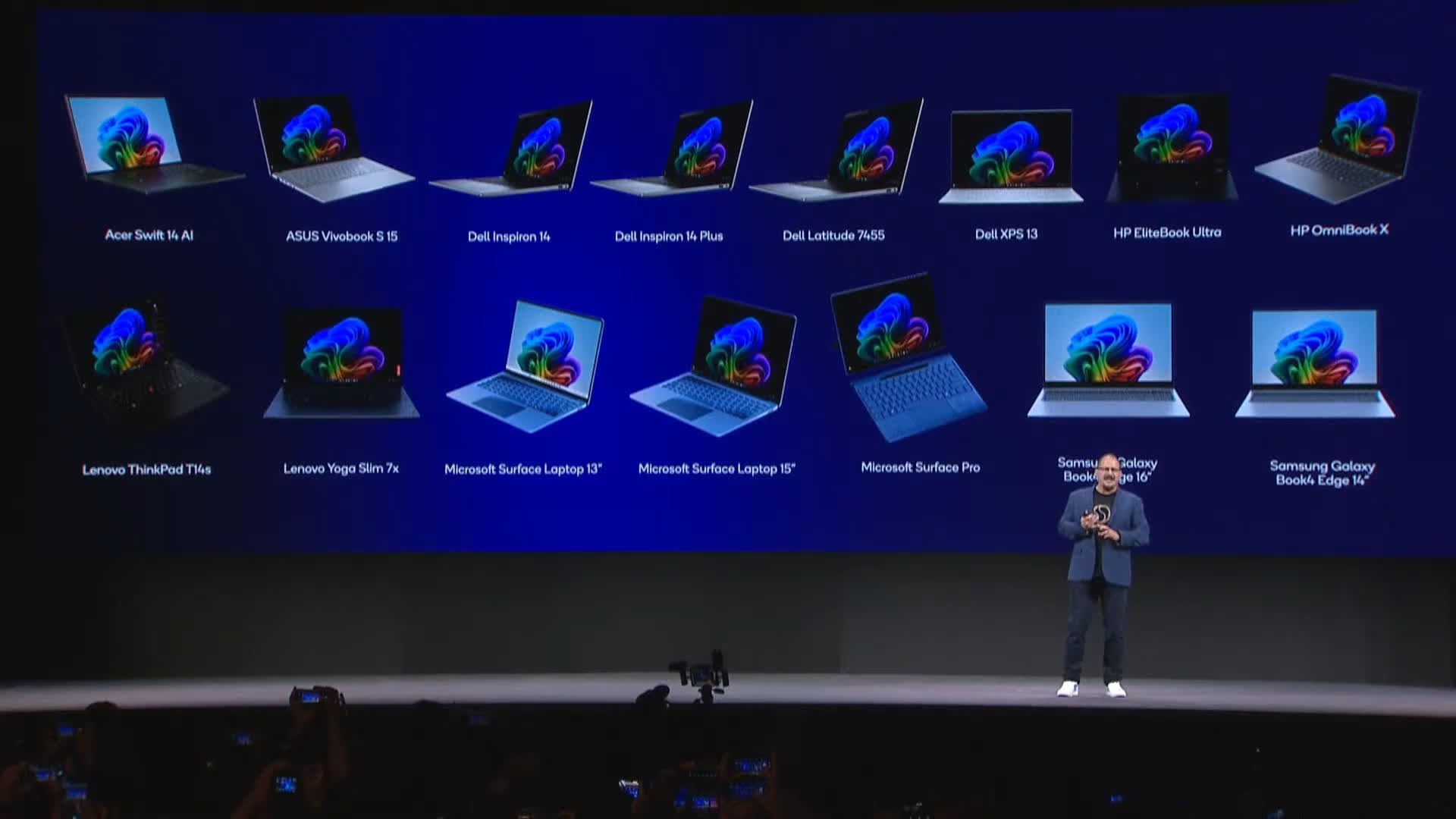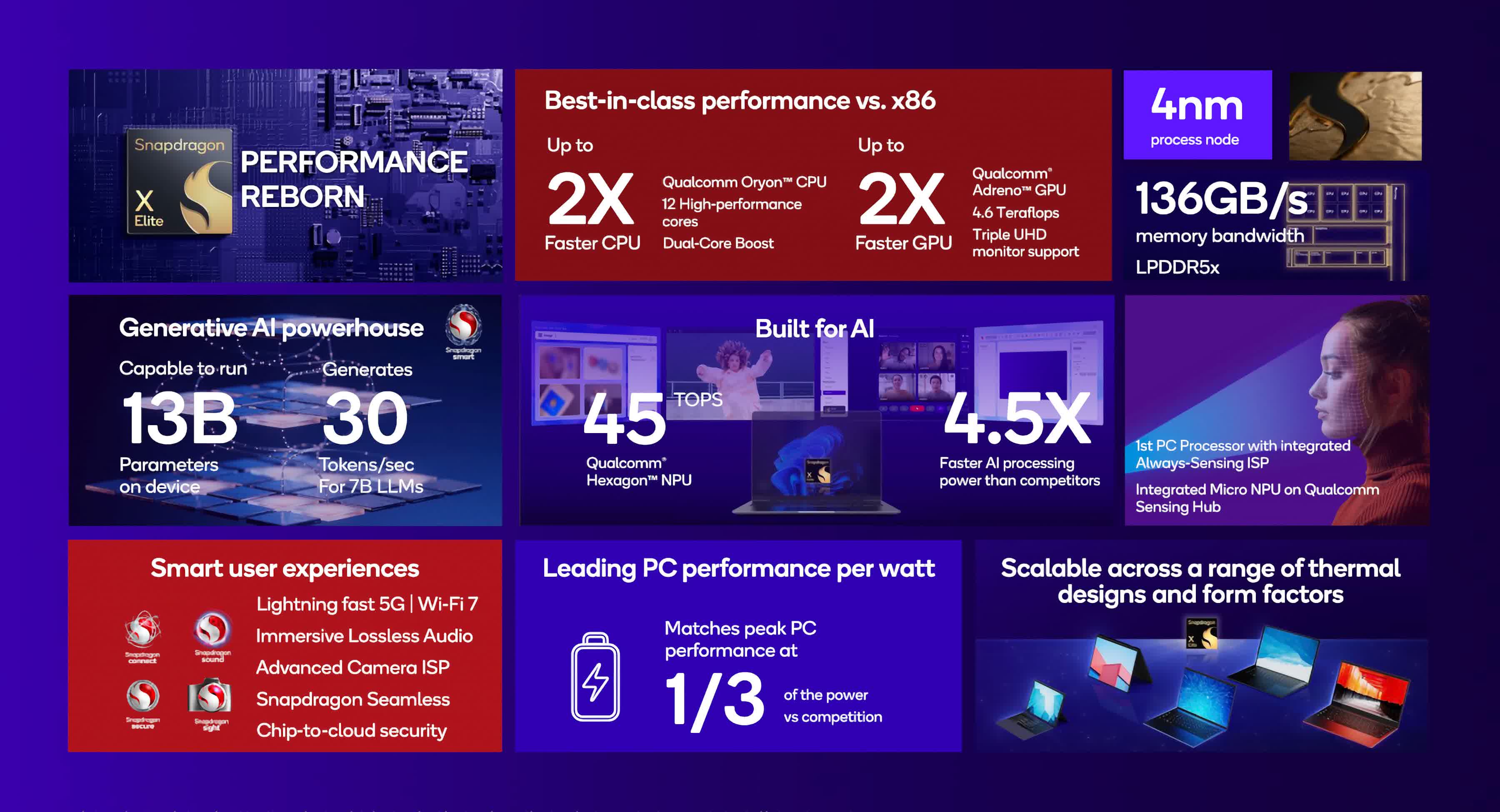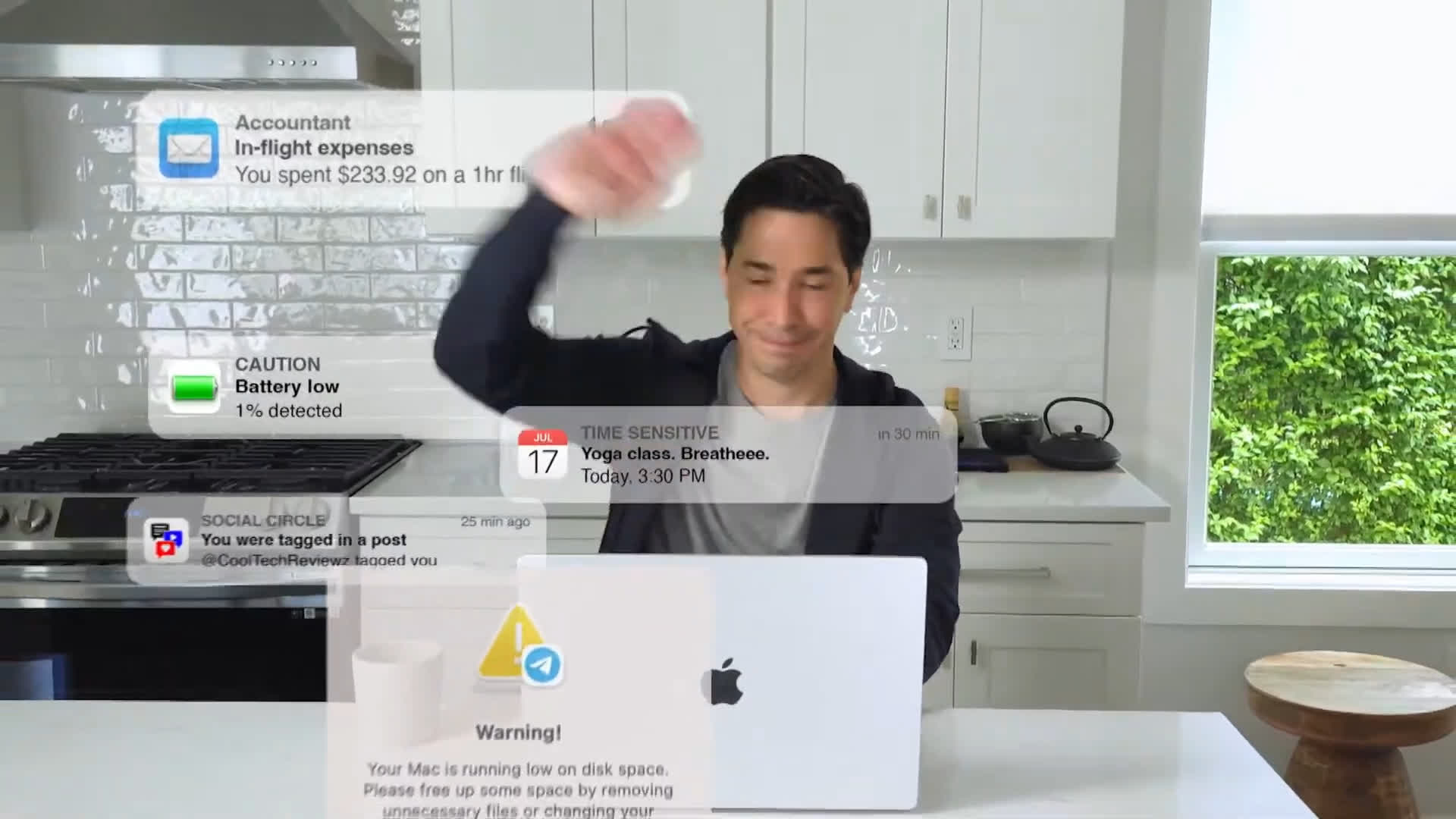In context: If there was any doubt whether the AI PC phenomenon was real, this year's string of CEO keynotes at Computex has put that issue to rest. Not only have Copilot+ PCs been a key element of every presentation, but the buzz and discussion around them have highlighted that the entire computing industry – from component suppliers and manufacturers to software developers and PC makers – hasn't been this fired up about its future prospects in a very long time.

Nowhere was that trend more apparent than at Qualcomm CEO Cristiano Amon's presentation. As the sole chip supplier for the first round of Copilot+ PCs, Amon was eager to share the company's enthusiasm for the category and for what he called the company's "graduation" into being a true computing semiconductor company.
Long-time PC industry watchers know this is actually the company's third attempt at delivering an Arm processor for the PC market, but it's clear that this effort is completely different from previous ones. Not only has the company lined up a significantly larger and more impressive array of partners and system designs – many of which were trotted across the stage during the keynote – but the performance levels and software support is significantly better than ever before.
In fact, looking back historically, this time Microsoft has decided to more strongly support the new Snapdragon X series than they did previous generations, so much so that they have prioritized it over the x86-based alternatives from AMD and Intel.
Although Copilot+ processors from AMD will be available in systems as early as July, they'll only be considered Copilot+ "Ready" and will need a software update that's still months away. This decision has caused consternation among industry players – especially given how much larger the x86 PC market is versus Arm alternatives – but it's a strong statement for how important Microsoft considers Qualcomm's efforts on the Snapdragon X Series.
With that, Qualcomm's Amon wanted to emphasize the capabilities that Copilot+ PCs enable as a category. He offered numerous current and future examples of what these devices could potentially do. Several digital agent-based demos were intriguing, with the agent performing actions on a person's behalf without them even being there, but for now, they remain more science fiction than science fact. Still, it was good to see Qualcomm pushing the boundaries and encouraging people to think about what might be possible with these devices.
Granted, virtually all the news about Copilot+ PCs had come out three weeks ago at Microsoft's launch event, so much of what Amon covered was a revisit of those. But given the context of Computex and considering the other keynotes from semiconductor competitors, it still made sense to reinforce the key messages.
In that sense, it was good to hear from many of the company's PC partners about their specific product designs. Representatives from Acer, Asus, Dell, HP, and Lenovo shared time onstage with Amon and showcased new system designs as well as some of their own software initiatives that leverage the 45 TOPs-capable NPU in the Snapdragon X SoCs.
I was a bit disappointed that Qualcomm made no reference to the potential for a 5G-equipped Copilot+ PC – only one SKU from Microsoft's new Surface Pro will offer it – because I think in the world of hybrid AI, it could prove to be an important differentiator.
The big question for Qualcomm moving forward is how all these partners will juggle the many competing offerings they will create and sell using new Copilot+ capable chips from AMD and Intel. Most of the partners Qualcomm had onstage were also in AMD's keynote earlier that morning and are likely to be in Intel's keynote tomorrow morning.
Competition for AI PCs and chip sockets among PC vendors has grown dramatically more intense, and the impact of that competition has come into clear focus here at Computex. While I have little doubt that Snapdragon X Series PCs will be well received, watching how the Windows-based PC market evolves is going to be extremely interesting.
As Amon finished his keynote, he reminded everyone that the competition isn't just among Windows PC vendors and suppliers – it's also with Apple. To that end, he debuted a clever new ad featuring former "I'm a Mac" actor Justin Long, showing him searching for a Snapdragon-powered PC – from a Mac. It was an entertaining way to highlight that the battle for personal computing hearts and minds extends beyond Windows and into a wider world.
Bob O'Donnell is the president and chief analyst of TECHnalysis Research, LLC, a market research firm that provides strategic consulting and market research services to the technology industry and professional financial community. You can follow Bob on Twitter @bobodtech
Qualcomm embraces AI PC future with big Copilot+ showcase at Computex


